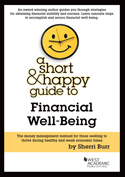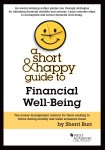by Sherri Burr
 In my article “5 Steps to Master the Art of Interviewing” I discussed how to set up, prepare, and conduct interviews. I also urged writers to write up the results immediately and share them with the subject. For today’s article, I focus on the joy of interviewing.
In my article “5 Steps to Master the Art of Interviewing” I discussed how to set up, prepare, and conduct interviews. I also urged writers to write up the results immediately and share them with the subject. For today’s article, I focus on the joy of interviewing.
To maintain a writing life for the long haul, writers need to receive pleasure from the process. The more gratification we obtain from our work, the easier it is to overcome the pain of rejection and keep writing daily, monthly, and yearly. The writers I admire the most are still putting fingertips to keyboards into their eighties.
When I interviewed legendary author Max Evans in 2012, he was still writing at 87. Evans was working on a book about director Sam Peckinpah (The Wild Bunch and The Getaway) and interviewing folks who worked with Peckinpah to gain information for his biopic. The day we had lunch, he was trying to reach Ali McGraw to set up an interview to discuss her collaboration with Peckinpah on The Getaway. Evans’ face was filled with delight as he discussed his planned attack for interviewing McGraw.
I have felt such bliss numerous times while preparing for or actually interviewing someone. In November 2011, I flew to Los Angeles to question actor Giancarlo Esposito who is known most recently for playing Gus on Breaking Bad. As sometimes happens, several attempts to interview Esposito had fallen through. For several years, I tried to obtain him for my television show ARTS TALK that I film during the semester so that my Entertainment Law students can interact with the talent they may someday represent. I finally obtained a date from him in early November 2011, only for my students to be disappointed when he had to cancel to film an episode of the hit television series Once Upon a Time.
At the end of November 2011, Esposito and I agreed to meet at his yoga studio during a block of time after he had completed a workout and before his meeting on a forthcoming film project. We drove around searching for a Starbucks and stumbled upon a gluten-free pastry shop where we were the only two customers. One of my students, Justine Hines (who was an Esposito fan), had prepared 20 questions, several of which dealt with the role of Gus. Since this was an extremely bad character that killed people, I asked Esposito about preparing for, playing, and ending a role like Gus.
Esposito said he agreed to play Gus because he “shows the devastation of meth in the West. I let roles speak to me and draw on their organic nature. Gus was unpredictable. Gus was graceful, caring, and polite. He cared about people. He ran a business, an illegal business. He took care to choose people with integrity. That went to the success of Gus.”
The director called in Esposito to inform him that he was killing off Gus at the end of Season Four. The six writers said they were sorry to see Gus go. They told Esposito, “We love to write for you.” Esposito said that is one of the highest compliments that a writer can give an actor.
Esposito found leaving Gus to be hard. He had to take time to shake off Gus. Sometimes he would catch himself walking like Gus and speaking like Gus. Indeed, he wanted to tell Gus to leave him alone. He finally accepted that excising Gus was like a journey and that he needed to compartmentalize the character from his soul.
As I listened to Esposito discuss this character, I was enthralled to be in his presence. To be a writer conducting an interview is to be a witness to the creative processes of others. Most writers craft work in an environment populated by one. When we interview, it allows the extroverted part of our nature, however small or large it may be, to surface and interact with others.
Take time to conduct interviews. It enhances and brings joy to your work and life.
 Sherri Burr is the Regents’ Professor of Law at the University of New Mexico School of Law where she teaches Entertainment Law, Intellectual Property Law, and Art Law. A graduate of Mount Holyoke College, Princeton University, and the Yale Law School, she has authored or co-authored 20 books, including A Short and Happy Guide to Financial Well-Being (West Academic, 2014). Sherri is also a long-time member of SouthWest Writers and a regular contributor to the organization’s newsletter SouthWest Sage.
Sherri Burr is the Regents’ Professor of Law at the University of New Mexico School of Law where she teaches Entertainment Law, Intellectual Property Law, and Art Law. A graduate of Mount Holyoke College, Princeton University, and the Yale Law School, she has authored or co-authored 20 books, including A Short and Happy Guide to Financial Well-Being (West Academic, 2014). Sherri is also a long-time member of SouthWest Writers and a regular contributor to the organization’s newsletter SouthWest Sage.
This article was originally published in the June 2012 issue of SouthWest Sage and is reprinted here by permission of the author.


